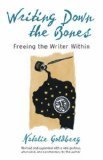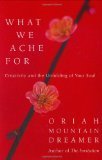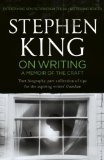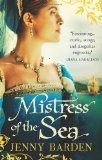Hannah Fielding's Blog, page 119
October 29, 2013
Must-read books for writers, established and aspiring
How did I learn how to write? By studying the craft of other writers, first and foremost – voraciously reading across genres from an early age, and studying literature through my schooling and at university. But along the way, like most writers, I’ve picked up the odd tome on writing – the practise, the art, the way of being – that’s provided great guidance, comfort and inspiration. Here are four favourites that sit yellowing and well-thumbed on my shelf.
Writing Down the Bones: Freeing the Writer Within by Natalie Goldberg
From the blurb: With insight, humor, and practicality, Natalie Goldberg inspires writers and would-be writers to take the leap into writing skillfully and creatively. She offers suggestions, encouragement, and solid advice on many aspects of the writer’s craft: on writing from “first thoughts” (keep your hand moving, don’t cross out, just get it on paper), on listening (writing is ninety percent listening; the deeper you listen, the better you write), on using verbs (verbs provide the energy of the sentence), on overcoming doubts (doubt is torture; don’t listen to it)—even on choosing a restaurant in which to write.
Why I love this book: It’s funny, it’s warm, it’s true-to-life, and it’s the kind of book you finish and then promptly order other copies for your writer friends (because of course your copy is too precious to lend out). The pocket version is ideal for inspiration on the go.
What We Ache For: Creativity and the Unfolding of Your Soul by Oriah Mountain Dreamer
From the blurb: What We Ache For is a moving and eloquent call to delve deeply into our creative selves, to do our creative work, and offer it to the world… a practical book allowing readers to embrace the urgency and necessity of their creativity, whatever their medium — writing, painting, sculpture, dance, music, or film.
Why I love this book: If you’ve read Oriah’s famous poem ‘The Invitation’, you’ll know that she has a way of stripping the word right back to its fundamentals, and really making you think about what’s important to you. This book is quite spiritual in feel, but provides a lot of food for thought for anyone who longs to be more in touch with their creativity.
You Know You’re a Writer When… by Adair Lara
From the blurb: You know you’re a writer when
. . . You’ll never forgive your parents for your happy childhood.
. . . The doctor tells you that you have terminal cancer and you think, “I can use this.”
. . . You accidentally sign a check with your pen name.
. . . You know more than ten synonyms for “blue.”
. . . You write your Christmas letter as if it were War and Peace.
Many readers will recognize themselves in this collection of observations about the eccentric, quirky, word-obsessed condition that is being a writer.
Why I love this book: I was given this as a gift, and it struck a chord at once. It’s a simple book, but one to treasure as a friend for life, because within the pages is contained the secret life the writer – eccentricities included – and having read the book, you’ll never feel alone in your writing again.
On Writing: A Memoir of the Craft by Stephen King
From the blurb: Rarely has a book on writing been so clear, so useful, and so revealing. On Writing begins with a mesmerizing account of King’s childhood and his uncannily early focus on writing to tell a story. A series of vivid memories from adolescence, college, and the struggling years that led up to his first novel, Carrie, will afford readers a fresh and often very funny perspective on the formation of a writer. King next turns to the basic tools of his trade–how to sharpen and multiply them through use, and how the writer must always have them close at hand. He takes the reader through crucial aspects of the writer’s art and life, offering practical and inspiring advice on everything from plot and character development to work habits and rejection.
Why I love this book: Part memoir, part writing guide, many writers agree that this book is essential reading for its sound advice. It’s the ‘book to be quoted’, so rich is it with nuggets of wisdom, such as ‘The road to hell is paved with adverbs’ and ‘Description begins in the writer’s imagination, but should finish in the reader’s’ and ‘Amateurs sit and wait for inspiration, the rest of us just get up and go to work’. A book to read and learn from.
October 27, 2013
Saving Mr Banks: The truth behind the fairytale
Top of my ‘to see’ list for films is the new movie Saving Mr Banks, which just premiered at the close of the British Film Institute London Film Festival and is released in cinemas in late November. The film tells the story of the making of Disney’s seminal film Mary Poppins; specifically, the battle of wills between the author of the Mary Poppins novels, PL Travers (played by Emma Thompson), and Walt Disney (played by Tom Hanks).
Having read the news coverage of the premiere, I’m fascinated by the story. I had no idea that Travers held out to Disney for 20 years for the rights to make a film of the first in her Mary Poppins series, and then so hated the film that was eventually made that she refused right up until her death to sell the rights to her other Mary Poppins books. Emma Thomson told the BBC: ‘What was fun was inhabiting someone who refused to let the fairy dust work. I loved her belligerence, I loved playing her rudeness, and her honesty.’
I have to say, I feel rather inspired by so resolute and principled an author! In today’s world, I’m sure most writers would jump at the chance to see a film made of their book – and all the associated merchandise. What integrity for her creative work Travers showed with her reluctance to sell.
I remember reading the original Poppins books, and I quite see how Disney’s children so fell in love with them that he was determined to bring them to life on the big screen. But a look at Travers’ bibliography shows again what a different kind of writer she was to the modern, prolific generation. Her writing career with Poppins was greatly spread out: Mary Poppins (1934); Mary Poppins Comes Back (1935); Mary Poppins Opens the Door (1943); Mary Poppins in the Park (1952); Mary Poppins From A to Z (1962); Mary Poppins in the Kitchen (1975); Mary Poppins in Cherry Tree Lane (1982); and finally Mary Poppins and the House Next Door (1988). Travers was born in 1899, and died in 1996, which means she wrote her final book in her late eighties. Inspirational indeed!
What do you think? Are you keen to see the film too? Here’s the trailer; I would love to hear your thoughts.
October 25, 2013
Book review: Mistress of the Sea by Jenny Barden
From the blurb:
Mistress Cooksley may be a wealthy merchant’s daughter, but she blushes at my words and meets my eyes look for look. Yet I cannot hope to court her without fortune, and a dalliance with a pretty maid will not hinder me from my path.
Captain Drake’s endeavour might bring me gold, but I, Will Doonan, will have my revenge.
The Spaniards captured my brother and have likely tortured and killed him. For God and St George, we’ll strike at the dogs and see justice done.
I thought I’d left Mistress Cooksley behind to gamble everything and follow Drake, and here she is playing the boy at the ends of the world. She’s a fool with a heart as brave as any man’s. Yet her presence here could be the ruin of us all…
As much adventure book as romance, Mistress of the Sea still manages to keep the romance reader engaged as you follow the blossoming relationship between wealthy merchant’s daughter Ellyn Cooksley and master caulker Will Doonan. It’s a tale of swashbuckling adventure that brings in Spanish gold, privateers, escaped slaves and even the legendary Sir Frances Drake.
Set in 1570, Ellyn is a young woman mourning the loss of her brother and fending off the unwelcome advances of a pair of ‘suitable suitors’ – wealthy merchants who offer a good financial match, arranged by her father – when she falls for Will, her handsome, confident and rugged young neighbour; a man who is unsuitable due to both his lowly status and his reputation as an adventurer.
Will, in the meantime, is driven by two great passions: the need to get revenge on the Spanish for the betrayal that led to the capture and supposed murder of his brother, Kit, and also in acquiring as much Spanish treasure as he can. At first he courts Ellyn’s attention as a game, but soon he finds himself genuinely attracted to her, giving him an additional reason to seek wealth.
When Will persuades Ellyn’s father to fund Drake’s next voyage to the Americas, the old man insists on accompanying them. Ellyn, fearful for her father’s wellbeing and unhappy with the match that her father has made for her, disguises herself as a boy and stows away on board the ship. This starts a chain of events that leads to both adventure and romance.
Nothing in her upbringing had prepared her for the predicament she faced: the isolation and disorientation, and the relentless physical discomfort. Her original, rather nebulous plan had been to play the role of galley boy who might be accepted as useful before a joyous revelation. But the viciousness of the mariner had shattered that fantasy. She was ruled by terror: the dread of brutality should she be discovered, and the fear of condemnation should she make herself known – she could barely conceive of her father’s wrath on finding out she had stowed aboard the Swan.
Mistress of the Sea is a great book. Jenny Barden has done her research well to bring both the characters and their world to life. The story draws you in, even as it jumps from ship, to the Caribbean and back to 16th-century Plymouth. The characters are well-rounded and realistic – you never feel frustration that the leads are acting unrealistically, something that mars some romantic novels. The descriptive writing is excellent, whether describing domestic life in a merchant’s household or Drake’s bloody raid on Nombre de Dios; yet without the reader needing a degree in history to understand what is going on. Finally, the mix of romance and adventure is pitched so well that whichever attracts you most to this book, you do not feel disappointed.
Overall, I really enjoyed this book. And I would highly recommend it if you are looking for something a bit different from your usual romance read.
Mistress of the Sea is available now from Amazon; click on the book cover below to visit the store.
October 24, 2013
Nautical inspiration
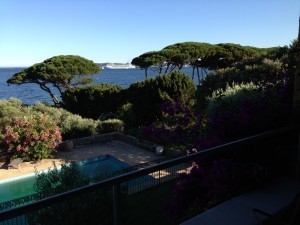 There is much traffic in the bay of St Tropez in the summer, and it was one of these liners passing by my window all lit up one night that inspired the opening lines of Burning Embers.
There is much traffic in the bay of St Tropez in the summer, and it was one of these liners passing by my window all lit up one night that inspired the opening lines of Burning Embers.
October 23, 2013
Crowdfunded novels: the future, or a step too far?
 Here’s how publishing has worked since its inception:
Here’s how publishing has worked since its inception:
Author writes book.
Author publishes book (him-/herself or via a publisher).
Readers buy book.
(Hopefully!) Author makes profit on books sold.
But a new route is emerging in the publishing industry that looks like this:
Author writes book.
Author asks readers to pay for publication (and possibly marketing of book).
Readers back book.
Author publishes book.
Readers buy book.
(Hopefully!) Author makes profit on books sold.
Or even like this:
Author comes up with idea for book.
Author asks readers to pay, based on idea, for writing and publication (and possibly marketing of book).
Readers back book.
Author publishes book.
Readers buy book.
(Hopefully!) Author makes profit on books sold.
This new route is born of crowdfunding. Platforms like Kickstarter (founded in 2009; has helped five million people fund more than 50,000 creative projects) allow authors to secure financial backing for their book before it hits the shelves or online book stores. The basic idea is that you pitch a project on such a platform, ‘selling’ the concept to backers, and you ask for pledges towards a financial goal; $5,000, say. If you get all the pledges you need to hit your target by the deadline, you get the money from backers. If not, the project has failed and you get no money at all. In return for their backing, you offer something special to those who support you – signed first editions, perhaps.
At first glance, this crowdfunding may seem a little crazy. What reader will part with money for a book without being able to then read it at once? Well, plenty, in fact. The UK company Unbound, for example, specialises in book crowdfunding projects, and it has some pretty impressive clients on its list.
The benefits to the author of using crowdfunding successfully are twofold:
1. You get money to put towards the cost of publishing/marketing your book.
2. You build a supporter base.
The latter benefit is perhaps of most interest. Those who crowdfund based purely on an idea (the book isn’t written yet) get a good idea of whether a market exists for their book. And for any project, those who do pledge are showing a commitment to the book. So, with crowdfunding, you can build up a readership before even having the book out. Innovative indeed!
For some projects, crowdfunding has its place. For example, Unbound backs some big author names who want to write a book but can’t find a publisher – such as bestselling author Kate Mosse with her book Chichester Festival Theatre at Fifty. But as a common route for authors? I don’t think so. The beauty of crowdfunded novels is that they are in a niche, special, different. If everyone started doing it, I think readers would quickly become alienated.
What do you think of this new development in publishing? I would love to hear your thoughts.
October 22, 2013
Humour in quotations
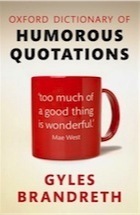 I was most intrigued by a recent article in the Guardian on humorous quotations (‘Jane Austen tops humour league for Oxford dictionary compiler’). Gyles Brandreth is the complier of the Oxford Dictionary of Humorous Quotations (what a great idea for a book!) and he selected as the funniest quote in English one with which I’m sure you’re very familiar:
I was most intrigued by a recent article in the Guardian on humorous quotations (‘Jane Austen tops humour league for Oxford dictionary compiler’). Gyles Brandreth is the complier of the Oxford Dictionary of Humorous Quotations (what a great idea for a book!) and he selected as the funniest quote in English one with which I’m sure you’re very familiar:
It is a truth universally acknowledged, that a single man in possession of a good fortune, must be in want of a wife. Jane Austen, Pride and Prejudice
It is, of course, a superb first line for a novel. Personally, it doesn’t make me laugh out loud, but it’s wonderful to see traditionalism play a part in the rankings here.
I was interested to read that the most-featured quote-maker in the book is Oscar Wilde, with no less than 92 entries. Brandeth told the Guardian:
These are the people whose lines, written or spoken, have stood the test of time. They are the all-time greats. Some are notable for their original humour, some for their pertinent wit and wry observation. Wilde is leagues ahead of the rest of the pack. He is without doubt the most quoted and quotable of them all.
Of the quotes that made it onto the ‘most humorous quotations’ list, these are my personal favourites:
Between two evils, I always pick the one I never tried before. Mae West
If not actually disgruntled, he was far from being gruntled. PG Wodehouse
Knowledge is knowing a tomato is a fruit; wisdom is not putting it in a fruit salad. Miles Kington
We’re supposed to have just a small family affair. Prince William on his wedding
And I would add to the list:
If you have enough book space, I don’t want to talk to you. Terry Pratchett
I’d rather be a rising ape than a falling angel. Terry Pratchett
Only two things are infinite, the universe and human stupidity, and I’m not sure about the former. Albert Einstein
Ever notice how ‘What the hell’ is always the right answer? Marilyn Monroe
How about you? Do you have a favourite quote that makes you smile?
October 21, 2013
‘Thoughts on the Venice Biennale’
Readers who enjoyed my recent posts on the Venice Biennale (‘A peek into the world of my upcoming novel: www.hannahfielding.net/?p=2721 and www.hannahfielding.net/?p=2750), will enjoy this article by artist Ana Tzarev: ‘Thoughts on the Venice Biennale’. The photos of artworks alone make this article worth a look – such colour and style! The balloon dog in particular made me smile.
Fruit crumble: The ultimate autumn recipe
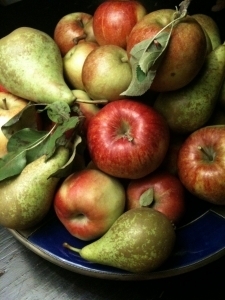 The very thought of autumn makes my taste-buds fire up. Salads slowly make way for hearty soups, delicately light mousses for warming fruit pies. For me, autumn is all about the harvest – a wonderful crop of delicious fruits and vegetables: apples, blackberries, butternut squash, leeks, parsnips, pears, pumpkins… the list is long and varied.
The very thought of autumn makes my taste-buds fire up. Salads slowly make way for hearty soups, delicately light mousses for warming fruit pies. For me, autumn is all about the harvest – a wonderful crop of delicious fruits and vegetables: apples, blackberries, butternut squash, leeks, parsnips, pears, pumpkins… the list is long and varied.
In my twenties, I first found my way to England, which I now call home for part of the year. Having lived before in Egypt and Switzerland, and travelled extensively around Europe, I was familiar with different cuisines, but sampling English food was an enlightening experience, and I soon came to love one of the staple autumnal desserts: fruit crumble.
Many people think of crumble as a heavy and filling desert – one that demands a digestive pause after the main course. But in fact, crumble need not be heavy at all: I simply use more fruits and less crumble topping.
Here are some wonderful fruit combinations (I love to use pears, apples and plums from my garden): spiced apple and raisin; apple and cherry; blackberry and apple; plum and apple; blackberry and pear; blackberry and pear and apple; pear, apple and nectarine; rhubarb and apple; rhubarb and ginger; apple and raspberry; apple and gooseberry.
And here’s a simple recipe for turning raw fruits into a comforting and delicious dessert:
Fruit for the filling
200g plain flour
100g unsalted butter
100g sugar (white or demarara)
2 tbsp cinnamon (optional)
Grated rind of one lemon (optional)
1 breakfast wheat bisc, broken into crumbs (optional)
Preheat the oven to 180C/350F/Gas 4.
Prepare the fruit (some can simply be washed and chopped; some require a little pre-cooking – soften in butter on a low heat for up to ten minutes.)
Rub together the flour and butter until you have crumbs. Stir in the remaining ingredients (except the wheat bisc).
Sprinkle the crumble mix over the fruit, and top with the wheat bisc.
Bake for 20–30 minutes, or until golden-brown.
You can, if you prefer, make individual portions in little dishes. Serve with a dash of custard or cream.
October 18, 2013
The business of publishing romance: Some facts and figures
 There are some who turn their nose up a little at romance novels, claiming that they aren’t sufficiently high-brow or literary. I’d have a little more sympathy for this point of view if it was shared by the majority; if romance novels were, like literary fiction, a small section of the market – liked by a few, but generally disregarded. But that’s most definitely not the case. The fact is that romance is highly commercial: put simply, readers buy romance books. Many, many readers. Which is why authors continue to write romance, and publishers continue to snap up romance novels.
There are some who turn their nose up a little at romance novels, claiming that they aren’t sufficiently high-brow or literary. I’d have a little more sympathy for this point of view if it was shared by the majority; if romance novels were, like literary fiction, a small section of the market – liked by a few, but generally disregarded. But that’s most definitely not the case. The fact is that romance is highly commercial: put simply, readers buy romance books. Many, many readers. Which is why authors continue to write romance, and publishers continue to snap up romance novels.
Here are some facts and figures I’ve come across about romance publishing which I found interesting:
In the US, romance takes the largest share of the publishing market (16.7 per cent).
Romance fiction generated $1.438 billion in sales in 2012 in the US, massively more than in other genres of literature, including religious/inspirational books, mystery novels, science fiction and classic literary fiction.
Fifty Shades of Grey sold ten million copies in six weeks.
The romance genre was more often at the top of bestseller lists in 2012 than any other genre.
Romance readers buy more books per year than readers of other genres. They also borrow more from libraries.
Back in 2007 (before ebook publishing took off), UK romance book sales amounted to 24 million, worth £118 million.
Forty-one per cent of romance book buyers have been reading romance for 20 years or more.
Sources: www.rwa.org ; www.rna-uk.org .
So, if you’re a romance reader, you’re a member of a family that’s:
Big
Loyal
Committed
Influential
And, of course, united! Romance novels have the power to unite through sweeping us away into a place of happiness and reminding us what’s really important in life. The British author Philip Pulman makes the point best: ‘We don’t need a list of rights and wrongs, tables of dos and don’ts: we need books, time, and silence. Thou shalt not is soon forgotten, but Once upon a time lasts forever.’
October 17, 2013
A rose by any other name…
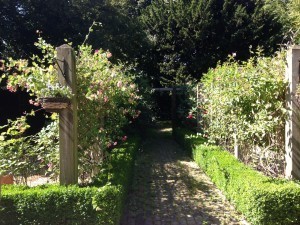 Roses and honeysuckle in my garden in Kent this summer. The fragrance passing by is out of this world.
Roses and honeysuckle in my garden in Kent this summer. The fragrance passing by is out of this world.

